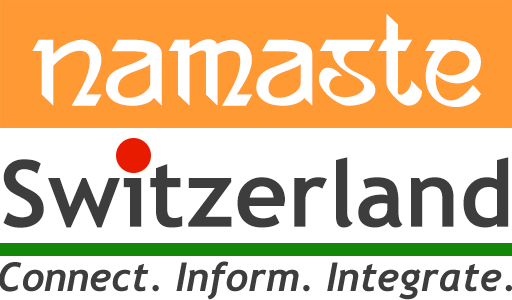Find out more about some of the cultures arising from the West of India. Share the celebrations!
Just when the New Year’s festivities make way for the daily grind of the domestic fanfare, the sun slowly enters the Makara (or Capricorn) constellation bringing Makara Sankranti upon us on 14/15th Jan. It is perhaps the only Indian festival that is decided upon the position of the sun. This festival , in its many names : Makar Sankranti, Khichadi, Lohri, Maghi, Uttarayan, Pongal, Magh Bihu, Jallikattu, Moh Juj, Kumbha Mela (6th/12th Year) , Gangasagar Mela, Makaravilakku , etc. is widely celebrated across the breadth and width of Indian sub-continent and by the Indian diaspora all over the world.

All tuning in to the succint introduction to the “Haldi Kumkum”
Traditionally, the period following Makar Sankranti is considered auspicious and favourable for spiritual reinvigoration. Haldi Kumkum, an offspring of Makar Sankranti, is celebrated in the weeks following it. Thanks to its unique aspect of social engagement, it has slowly grown out of its traditional fold in Maharashtra, Gujarat, Rajasthan and Goa to wider regions primarily led by ongoing cultural pollination. It is largely analogous to how Karwachouth is now celebrated in the large swathe of Indian subcontinent and beyond.

Greeting and Meeting : An essential element of the event
Haldi Kumkum brings a period of sheer merriment and joy in which the married women invite their friends, relatives, neighbours & acquaintances to meet, greet, dance and celebrate life. In its true traditional denotation, the rituals of the festivities involve applying the Haldi (turmeric) and Kumkum (herbal vermillion) on the forehead, Exotic Scents (primarily perfume these days) on the forearms. It is complemented further by a hint of rose-water sprinkles and by exchanging sweets, flowers and fruits. The ceremony concludes by hostess(s) offering gifts (Vaan in Marathi), sweets (tilgul – made of Sesame Seeds and Jaggery), light snacks in return for mischievously formulated Ukhana (a ritual involving impromptu yet creative couplets). All in all, the festival is a recipe for laughter, merriment and fond memories.

At the end of the event : A fraternity is formed, friends and lasting memories are made
In modern times, the festival is all about celebrating the womanhood and reinvigorating social bonds by meeting and greeting friends, family and acquaintances across cultural, religious lines. Moreover, the ceremony offers the opportunity to do what everyone loves: dress up, go out, meet other women and bond with them over a fair choice of traditional delicacies. It is an event that happens several times over depending on how many friends and relatives one could invite and be invited to in return.

A little swagger goes a long way
Zurich is now firmly on the Haldi Kumkum map – the city saw its 1st event by The Fantastic Five (Kanchan, Shraddha, Subhada, Trupti, Vishakha) in a tiny suburban flat in Seebach in 2016 witnessed its 5th event, on 18th Jan 2020, celebrated with much grandeur and fanfare in Wallisellen. The planning starts a year in advance and it even includes sourcing a large number of Vaans, each individually hand-picked and ferried to Switzerland through several family trips to India. This year was particularly challenging as they needed to procure several hundred items but it was all done with utmost fervour and exuberance.

First Haldi Kumkum in 2016
It was a fun filled Haldi-Kumkum – 2021 awaits.
About the Author
 Deepak Vishwakarma is a father of two wonderful kids; based in Wallisellen and working in a bank in Zurich. “Essentially I am a traveler lost in transit : A Modern Nomad. Started from a village in deep northern UP – traveled further up north reaching Switzerland in 2013 after a rather long stay in UK. Deep roots in India but growing all over the world. Advocate of racial, religious independence. Keen observer of life and everything around. Arts,architecture and history enthusiast. Mostly boring – funny at times.”, says Deepak.
Deepak Vishwakarma is a father of two wonderful kids; based in Wallisellen and working in a bank in Zurich. “Essentially I am a traveler lost in transit : A Modern Nomad. Started from a village in deep northern UP – traveled further up north reaching Switzerland in 2013 after a rather long stay in UK. Deep roots in India but growing all over the world. Advocate of racial, religious independence. Keen observer of life and everything around. Arts,architecture and history enthusiast. Mostly boring – funny at times.”, says Deepak.
Disclaimer: Opinions expressed belong solely to the content provider. Namaste Switzerland does not undertake any financial/reputational/legal/misrepresentational impact or other obligations/ liabilities that may arise from the content.












